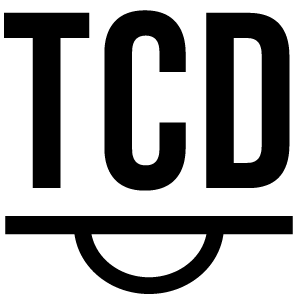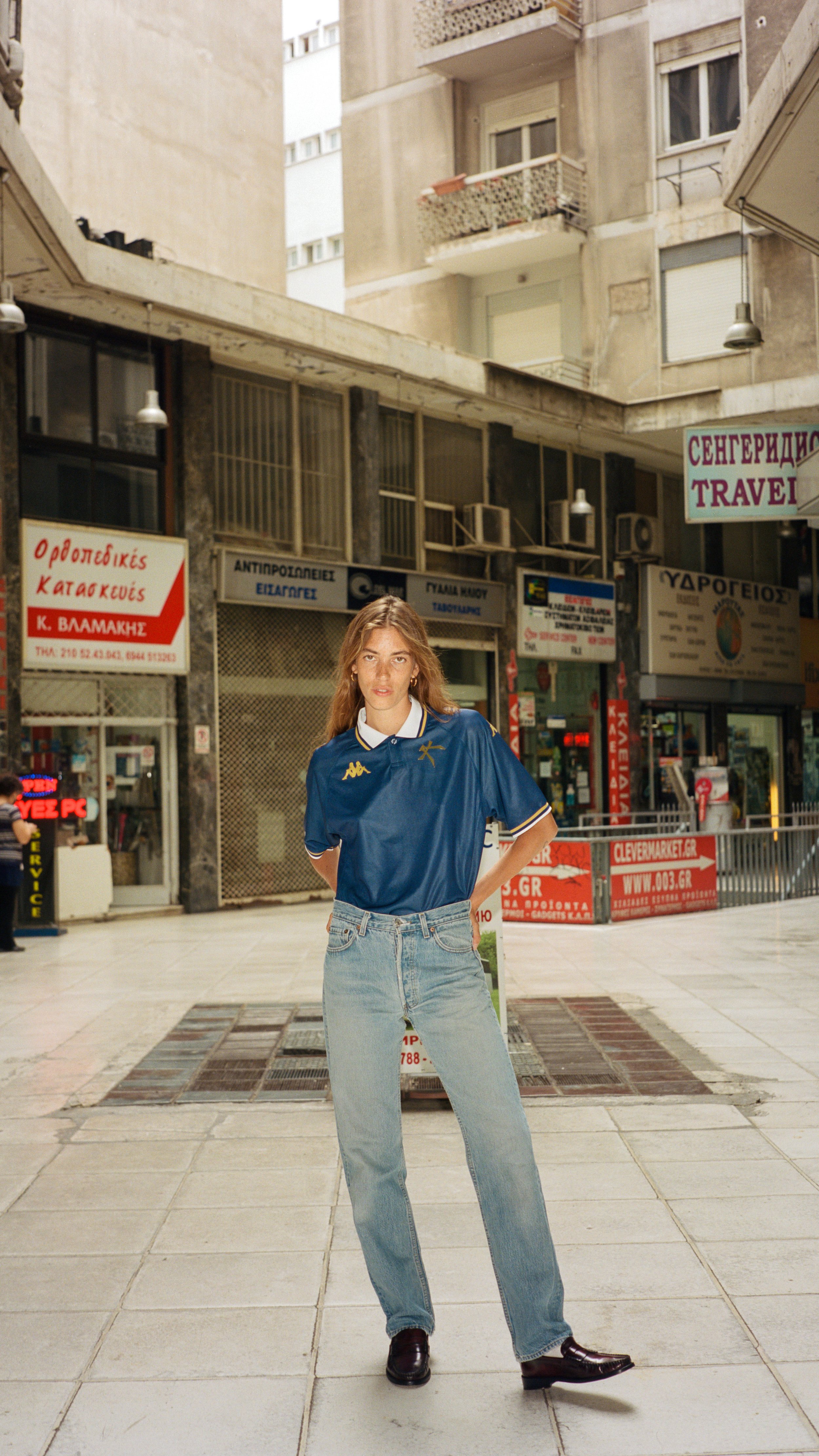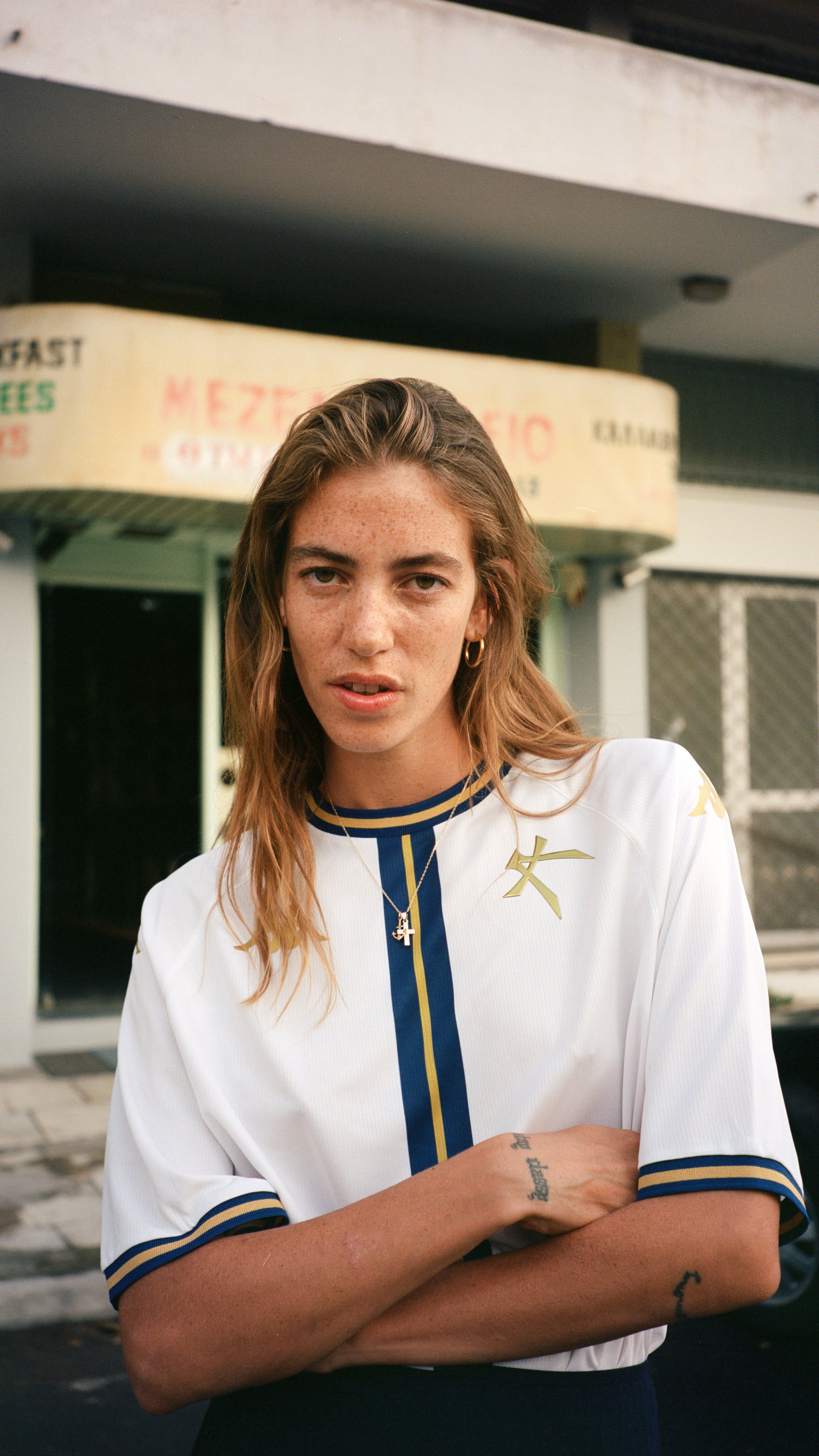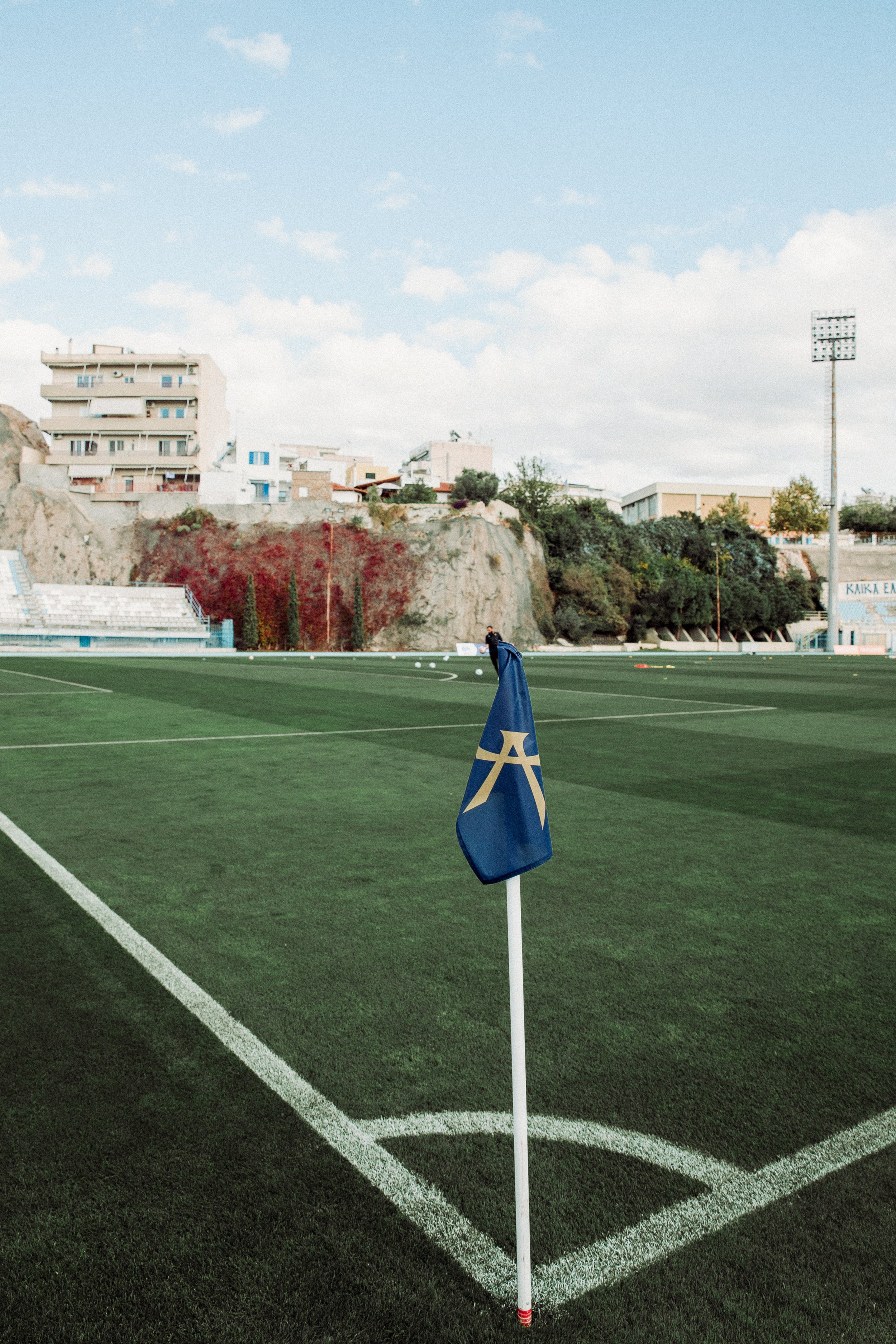Repositioning Greek Football: The Culture Division Meets Athens Kallithea FC
In September, Athens Kallithea boldly announced itself to the world. We spoke to the club’s President, Ted Philipakos, on the significance of their journey, the issues at the heart of Greek Super League, and Athens Kallithea’s aim to change Greek football for the better.
Ted Philipakos is best known as the visionary and creative string-puller behind the meteoric rise of Venezia FC, whose historic promotion to the top flight in 2021 sought only to cement their status as the great disruptors of Italian football. This past summer, the club’s Chief Brand Officer oversaw a bold reimagination of the club’s identity, which saw them partner with seminal, Berlin-based design studio Bureau Borsche. It was a hit.
In September, Ted revealed a new venture. This one, working in parallel with his role at Venezia, is closer to his roots.
The takeover and subsequent transformation of a football club in the Greek second division, based in the Athenian district of Kallithea, was the fresh beginning of a project more than 18 months in the making. Athens Kallithea FC, as it was renamed, was born.
A new outlook, logo, and a pair of home and away shirts, also designed by Bureau Borsche, was unveiled in typically-sleek fashion. The Kappa-Bureau Borsche fingerprint – an indelible stamp of sophistication that has come to define the zeitgeist of conscientious and forward-thinking football culture – was plain to see. The bold silhouettes of the home and away shirts (and later, the third shirt) were an instant sensation: blending decades of football heritage with that of the district itself. Athens Kallithea had arrived.
In the same classy way they’d announced themselves off the pitch, their results on the pitch have been equally as eye-catching. The duality of that early success speaks to the club’s wider ambitions.
“Our highest goal at Athens Kallithea FC is to make a contribution to a repositioning of football in Greece.”
***
In just 18 months, it’ll be two decades since Greece became European champions. The legacy of that triumph, and its impact on Greek domestic football, is not lost on Ted.
“In the mid-2000s, Greece not only won the European Championship but the league was ranked as high as seventh by UEFA country coefficient, with Panathinaikos, Olympicacos, and AEK Athens respectably competitive in Europe.”
But the squandering of that legacy, particularly against the tide of widening competitive and commercial inequality in European football as a whole, has become self-evident.
“Since then, UEFA have systematically established unprecedented competitive and economic disparity in favor of the top five leagues. But in response, Greek football has only made matters worse,” Ted explains.
“If the organizing principle of any professional sports league is to maximise competitiveness and revenues, then the [Greek] Super League has been a failure. The marketing sensibility in the league has been out of touch for a long time, and, simply put, that translates to lost money for everyone from the big clubs to the small clubs.”
Grigoris Lambrakis Stadium, Kallithea, Athens. Photo by Alex Grymanis.
“At the same time, the league has not been organised in a manner that would maximise competitiveness,” he adds.
And he has a point.
The Super League currently ranks 19th in UEFA’s country coefficient, one place ahead of Israel. No Greek teams qualified for the Group Stage of this season’s Champions League. In fact, no team has advanced beyond the Group Stage since Olympiacos did in 2014.
It’s a far-cry from the routine qualification and Group Stage progression we saw from the biggest clubs in the mid-2000s. It’s half-a-century behind the legendary Panathinaikos team of 1971, who would have a European Cup victory to their name if not for Johan Cruyff’s Ajax. Greek football’s European legacy has been forgotten.
“Greek football’s marketing and competitive failures are inextricably linked,” he adds. “One continually feeds the other. We’re not just a competitor, we're rooting for those top clubs to get back to their best, when they were highly competitive in European competitions. When they're doing well, that actually helps uplift the whole environment.”
Shortcomings of Greece’s domestic game aside, there is a more profound motivation behind Ted’s journey with Athens Kallithea, most notably, society’s altering relationship with football.
“For reasons already stated and for many other reasons, the public at large has become disenchanted with the sport. One of the main problems is the way supporter culture has devolved, as the negativity and divisiveness have pushed away too many people, which is a shame considering this is a country that's really passionate about sports. The stadiums used to be full around the country from the big clubs to the small clubs.”
***
For a club on the smaller side, in the shadowy hue of Greek football’s giants, it’s a tough task. But Ted is under no illusions as to the challenge they face.
“We're still in the second division, so we have our own work to do. But besides winning matches, we took over this club because we wanted to be part of the conversation on how to fix things.”
That conversation, contributing to a shift in the landscape of Greek football, makes the challenge itself an even greater part of the reward.
Athens-born hip-hop artist Kareem Kalokoh in Athens Kallithea’s 22/23 Third Shirt. Photo by Ethan White.
The fresh outlook; the brazen attitude of thumbing their noses at the established status quo; the re-energising of a powerful but dormant regional football culture: it’s a bold approach that bore fruit at Venezia. But while Ted’s influence appears to be a bridge between the two clubs, he’s keen to make clear that this new venture is uniquely distinct.
“I would guard against potential assumptions that it's derivative,” explains Ted.
“There is going to be some degree of shared sensibility through me, but Athens Kallithea is a separate project that's significantly different from Venezia. I've been simultaneously working on both projects since we started pursuing the acquisition of Athens Kallithea in December 2020, so it's already routine for me. I'm traveling between Athens and Venice and I have good people helping me get things done.”
One of those people is his brother, Peter, a former professional footballer who once played for Olympiacos. Ted and Peter share partnership of the club and act as President and Vice-President respectively, and their Greek roots add a new dimension to their venture.
Brothers Ted (left) and Peter (right) at the Grigoris Lambrakis Stadium, Kallithea, Athens.
When compared with Venice, in a footballing and cultural sense, Athens is a different beast altogether. Three of the biggest clubs in Greece – Olympiacos, Panathinaikos and AEK Athens – are all located in-and-around the capital city. But the district of Kallithea is unique in that regard.
“I chose Kallithea for several reasons. It's the most centrally located stadium in Athens; Panathinaikos are the only other club playing in the very centre. It's a traditional Athenian neighbourhood, not somewhere that's trendy today and won't be tomorrow. It's in a strategic location, in the shadow of the Acropolis and just off Leoforos Syggrou, the main road that connects the city center to the Athens Riviera.
“As for the club itself, it's had a modest but respectable history for us to build upon. And as a bonus, I was attracted to the club's blue and white being the national colors, because there's a symbolism for what we want to do here.”
***
Competing both on and off the pitch with the established clubs of Greek football, particularly in a city like Athens, is a brave challenge. To make matters trickier, the highly-corporatised, balance-sheet iteration of modern football is not especially welcoming of projects that aim to build organically around a community. But Ted’s vision is clear.
“Olympiacos, Panathinaikos, and AEK have countless passionate supporters, and our club has had modest support in recent years, but we're going to rebuild the community around a new vision, and last month's presentation was early proof of concept that there's an audience to reach, especially with younger people in the city.”
That change will have to happen at a different pace from the bigger clubs is a reality which Ted accepts.
“We won't have the resources that those clubs have in the short to medium term, if ever, but we'll find creative ways to compete. The top four clubs may remain the top four clubs for a long time, but we want to at least be that fifth club within the next five years.”
If Athens Kallithea’s early season form is anything to go by, that end goal is a lot closer than it looks at first glance. They’ve had two wins from three in the league, and three consecutive Greek Cup wins, setting up a Round-of-16 tie with struggling Lamia from the first division.
Three consecutive cup victories, two wins from three in the league, an 18 match unbeaten run. It’s been a blistering start. Photo by Alex Grymanis.
It’s a lightning-quick start to this season that follows a clear trajectory of improvement on the pitch. In fact, their most recent defeat to Kifisias ended an 18-match unbeaten run, stretching all the way back into March of this year. Last season, the first since the acquisition, demonstrated a mark of intent from the new ownership. They worked to overhaul almost the entire squad of players (just two players were brought forward from the previous season) and rebuilt a new staff from the ground up. Their bold strategy paid dividends, as they finished in second place — seven points shy of promotion — the club’s most successful season in the 16 years they’ve spent in the Super League 2.
A win against Lamia would sit them, for now at least, at the big table. But beyond the Greek Cup, Athens Kallithea’s imperative is clear: pull up a chair and get comfortable; we intend to sit here for a long time.







